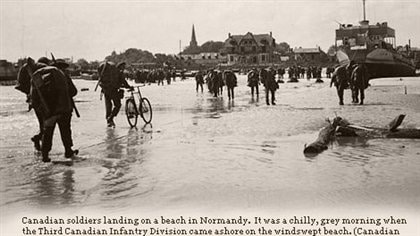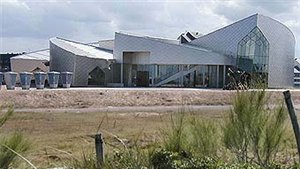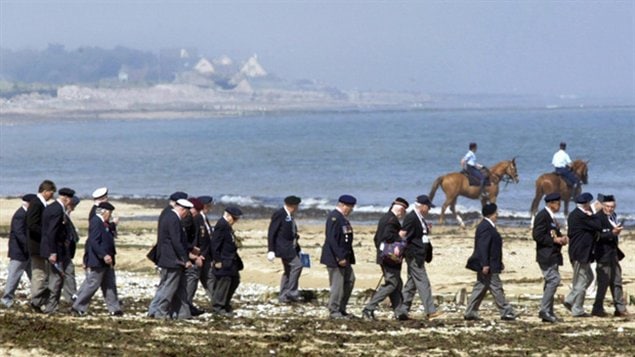Canadians are being asked to comment on plans to build 75 wind turbines off Juno beach in France. The area is famous as the landing place of the Allied invasion of Europe which marked a turning point in World War II.

359 Canadians died there but many more moved further inland than any other group. They were the only ones to achieve their objectives. “For many Canadians the landings on D-Day June 6th, 1944 is one of the central events in the Canadian experience of the 20th century,” said Terry Copp, a military historian and professor emeritus at Laurier University.
“D-Day was the beginning of the liberation of Europe from Nazi tyranny and therefore for everyone it became symbolic not only of the actual day and landings, but symbolic of the west’s part in the liberation of Europe.”
Out of a population of 11 million Canadians, one million volunteered in the Canadian Forces and the war touched almost every family.
Now a French commission is holding hearings on the plan to build wind turbines some 10 kilometers offshore to generate electricity. The commission has invited people from Canada, the U.S. and Britain to voice their opinions about the project.
“I personally am very much against it,” Roy E. Eddy told The Canadian Press. The 88 year-old fought at Juno Beach and said “I know a number of people have said they don’t agree with me, and I’m not disputing that, but I still say it’s going to be very disrespectful.”
“I still have nightmares about it,” said Eddy. “I had about 35 men in my landing craft, they gave me the signal to drop the ramp . . . only nine got off alive . . . I lost a lot of very good friends.”
The Canadian government acknowledges views like Eddy’s. “We understand and share the concerns of those who fought for freedom,” said Jean-Christophe de Le Rue, a spokesman for the minister of veterans affairs. He said the minister had asked his senior officials in France to monitor the situation and to report directly to him.
Not everyone is against the development. Historian Terry Copp said there has already been condo development on the beach which have done more to transform it. He thinks the proposed wind turbines will be far enough away that they won’t really interfere with the view.

Copp visits Juno beach every year. He notes those who want to understand the significance of the Canadian role in the D-Day landing can go to the Juno Beach Centre at Courseulles-sur-Mer. “…(this Canadian museum) is in the midst of a refit, re-organization. They’ve done enormous work to try and recreate the beach as it was in 1944. Some of the German bunkers have been uncovered and it’s an on-going process. I think visitors to the Juno Beach Centre will have a moment of real experience of the landscape as it was in 1944 and I think that’s really important.”
Once the French commission has completed its consultations it will submit a report to the contracting authority which will “make an informed decision.”







For reasons beyond our control, and for an undetermined period of time, our comment section is now closed. However, our social networks remain open to your contributions.